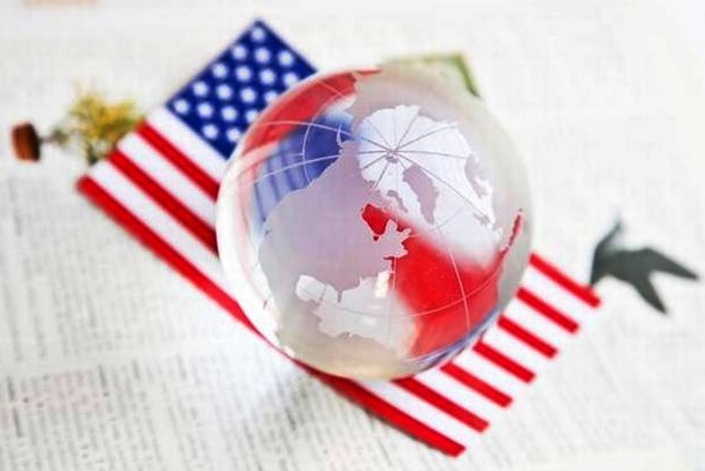A Brave New Self-help World

Happymon Jacob, in the Hindu, FEBRUARY 21, 2017
UPDATED: FEBRUARY 21, 2017 01:03 IST
 (Note: Francis Pappa used to advise, nay exhort youngsters, ever since the World Youth meet in Brazil, to go and mess-up things where institutions have been resisting change at all cost. Did he say anything wrong or new? Not at all! Like a far-sighted watchman on the horizon, to hasten change to happen, he was telling people ready to take risks to make things intolerable, unbearable! When that happens those at the top will definitely change for the sake of getting out of the mess. That change need not be for the better always. If that change leads to worse things, it will necessarily rebound to some thing better automatically. So change must be forced to happen first. That is what is happening now. Now we have to guide the course of change happening.
(Note: Francis Pappa used to advise, nay exhort youngsters, ever since the World Youth meet in Brazil, to go and mess-up things where institutions have been resisting change at all cost. Did he say anything wrong or new? Not at all! Like a far-sighted watchman on the horizon, to hasten change to happen, he was telling people ready to take risks to make things intolerable, unbearable! When that happens those at the top will definitely change for the sake of getting out of the mess. That change need not be for the better always. If that change leads to worse things, it will necessarily rebound to some thing better automatically. So change must be forced to happen first. That is what is happening now. Now we have to guide the course of change happening.
And signs of urgent need for change were around us for long from the last year of Obama’s reign. That need for change grew and burst out for the whole world to see with Brexit. It was the explosion of a pent-up volcano which made some happy, some unhappy and all of us restless. Then came the triumph of Trump as a Climax. He in addition is bringing drastic changes through executive orders. Are these changes leading us go forward or backwards? Are we experiencing more Order or Disorder now? That is the BIG question.
We always had uncertainties but not that many as we have today. Being in the midst of too many, we are at a lose in what direction the Captains of nations are forcing us to go, although we are pretty certain in which direction we should not go – the direction of confrontation, division, exclusion and inhumanity. Hence the world wide protests against blocking immigrants, building walls of exclusion, mistreating women, deporting work force sweating to build the country US for much less than minimum wage etc.
“The wealth of our middle class has been ripped from their homes and then redistributed all across the world,” says the writer Jacob rightly. We already said it long ago: “The Capital (Das Capital) of US is all over the world, not in Washington DC”, in CCV, Jan.27th editorial: “Three cheers to President Trump.” After World War II US used to be the most trusted leader (also world policeman) in the world, like Saddam Hussein in Iraq. With the triumph of Trump US is withdrawing from a series of such responsibilities and becoming an isolationist leaving many explosive hot-spots around the world vacant for too irresponsible forces like ISIS to take over with their destructive agenda. Today American forces are deployed in 138 countries as of 2016 doing more constructive than destructive work.
Is this domino effect – US withdrawal, after Brexit, from too many cooperative ventures around the word – going to affect negatively too many cooperative ventures around the world? Like it or not, more countries in Europe are planning to withdraw from Euro-zone like UK. What about regional cooperations in Asia, in South America, Africa and the UN itself? Is the world retreating back to independent nation states fighting and exploiting each other? Definitly that is not progress. Unity and collaborative ventures among nations of the whole world alone should be the right direction to true progress. That alone will lead us to Vasudeva Kudumbakam where alone can all humans find enough for every one’s need and not any one’s greed. Greed has to be fought against for the “Pursuit of Happiness” which is the right of every nation, not US alone.
With the continued withdrawal of US from world responsibilities are we going to foefeit even the semblance of world Order? Nay are we jumping headlong into a sea of Chaos to be drowned together? This is the lurking fear in the hearts of many well-meaning people. Uncertainties galore therefore, are staring us in the face. Here our task is to make these uncertainties into opportunities for brighter days to come, starting with finding ways to domesticate and tame, not provoke, a wild bull running amok, insane and berserk. james kottoor, editor).
We may have complained about the post-War order, but the lack of an intellectual replacement is a nightmare
While it is easy to laugh off or flatly dismiss U.S. President Donald Trump’s ‘un-American’ policies, a closer look at the larger context of his actions, articulations and their potential implications indicates the onset of a whole new world order, one that we may not necessarily like.
The unsettling symptoms of a new world dis-order have been around for some time, but the election of Mr. Trump has now made it a near certainty. Are we then witnessing the gradual demise of the post-War world order, one that we often complained about, for a number of legitimate reasons, and yet clung to, especially after the Soviet alternative turned out to be a disappointment?
The Age of Uncertainties
We live in an age of myriad uncertainties. Political and geostrategic developments around the world today could potentially dispel some of our age-old certainties, values we hold dear, and potentially throw the international system, as we know it, off balance. Not that international politics was ever a truly virtuous space laden with noble intentions. But we believed that it was possible to “make it a better world” and kept at it: British Prime Minister Theresa May just ended the party announcing that the days of remaking the world are over, without invading other countries to be precise!
The Western attempts at remaking the world weren’t born out of altruism or charity, we know, but geopolitical considerations. We have witnessed those double standards and hypocrisies in play ever since the beginning of the contemporary world order, created in the interests and image of the victors of the World War II. Of late, we also saw the increasing moral, intellectual and institutional decadence of the transatlantic world order, which left out large chunks of humanity from its often self-serving institutions, including the United Nations. And yet, the curious thing is that an imperfect world order is often better than the absence of any order: we need order, predictability and norms for our collective survival, even as we attempt to reform them.
Once we are done with our ‘celebrations’ at the passing of the imperial order, we will be confounded by the scary lack of an intellectual and structural replacement. While this may be the classical anarchist’s long-cherished dream come true, it could well be our worst nightmare, for when the world order undergoes fundamental changes, the aftershocks could be tectonic.
American Isolationism 2.0?
While the world’s “indispensable nation” may not go back to the days of interwar isolationism, there is a strong tendency in the U.S. today to shift focus inwards and be suspicious of free trade, military alliances and overseas commitments. Because, as Mr. Trump evocatively puts it, “The wealth of our middle class has been ripped from their homes and then redistributed all across the world.”
This neo-isolationist fad in Washington is reflected in the early decisions of the new administration. The U.S. withdrawal from the Trans-Pacific Partnership agreement (TPP) is just the beginning. It is well on its way to renegotiate the North American Free Trade Agreement. Mr. Trump may also turn his attention to the Transatlantic Trade and Investment Partnership, which proposes to cut tariffs and regulatory barriers between the U.S. and European Union.
If the U.S. takes a back seat, others with divergent visions of order, stability and power politics might step in. Washington’s withdrawal from the TPP, an agreement which could have furthered U.S. power in the Asia-Pacific, for instance, will be to China’s advantage. Australia has indicated the possibility of inviting China to fill the slot. Beijing will grab this opportunity to highlight its rising influence, with the U.S. pivot to the region fading away at a time when Beijing’s own pet transnational project, the One Belt, One Road, is set to take off.
There is yet another downside to this neo-isolationist tendency. The U.S., until recently, did not show any indications of winding down its military engagement around the world. It is estimated that American forces were deployed to 138 countries in 2016. In other words, after exporting military power around the world leading to both destruction as well as stability, Washington wants to retreat. Such an abrupt power vacuum cannot be without resultant challenges.
One major reason why there is stiff resistance to Mr. Trump’s neo-isolationist policies in the U.S. is precisely because it has been a major beneficiary of its global engagement. ‘Fixing democracies abroad’ helped its geopolitical interests, peace-building led to the creation of soft power, the Washington Consensus ensured American primacy in the international financial institutions, and NATO kept Europe together and Russia at bay. For the U.S. to claim now that it was being too charitable globally is disingenuous. Its global engagement had a strategic rationale behind it, even as it did help maintain a certain order in the world, despite our disagreements with it.
Mr. Trump and his neo-isolationist policies would further damage Europe’s grand post-national project, already under siege by the rise of nationalism and lack of consensus on key issues. The rise of EU as a political, economic and security actor would have been unthinkable without the American military imprimatur. Hence, mixed messages from the U.S. about NATO could harm the collective security architecture of Europe. This will further enhance Euroscepticism and sharpen calls in European capitals to ‘exit’ from the Union. Brexit is perhaps just the beginning.
The end of unwavering American security guarantees could also lead to new frictions within the Union. Euroscepticism would mean an increase in the Russian ability to keep extending its sphere of influence, one piece of Europe at a time. Hungarian Prime Minister Viktor Orbán’s new-found friendship with Russia, to the uneasiness of his European partners, is one such example. Though Barack Obama talked about how many European allies were free-riding on American military efforts, it was merely a complaint. Mr. Trump might go beyond registering complaints, and end up doing to Europe’s post-national project what pressures from migration, low economic growth and the rise of right-wing nationalism could not. It was only logical then for the European Council president to term the election of Mr. Trump a threat to the EU.
Return of Realpolitik
These transformations in the international system herald the triumphant return of realpolitik, riding roughshod over collective security institutions, alliance commitments and normative considerations. It is not that hard-nosed strategic calculations didn’t matter earlier, but they were hidden behind the niceties of diplomacy and humanitarianism. The difference today is that there is neither an attempt to check the limits of realpolitik nor are there any normative claims. In such a self-help world where “it is the right of all nations to put their own interests first”, and with the global policeman hanging up his boots after having created a lot of mess, we must remain concerned.
We must also be concerned because as Henry Kissinger reminded us recently in his book World Order, global power shifts are accompanied by geopolitical chaos: “Chaos follows until a new system of order is established.” The quasi-unipolar world, if you will, is under great strain, but the potential foundations of multipolarity are nowhere in sight.
This systemic uncertainly is accompanied by a dangerous mix of global terrorism, nuclear proliferation, changing climate, challenge of hybrid warfare, and worldwide demographic, societal and environmental stress. This then is surely an age of uncertainties.
Implications for Asia
The Trump administration’s aggressive posturing towards China, hesitations over extended security guarantees in East Asia and the withdrawal from the TPP could trigger a series of geopolitical developments in the region. First, Chinese influence will increase and its smaller neighbours would have no option but to acquiesce. Second, the rise of Russian and Chinese geopolitical influence and their bilateral partnership will impact the entire region, including India. Third, with China and North Korea in their neighbourhood, both South Korea and Japan will be forced to increase their own military build-up. If America indeed withdraws from its foreign commitments, North Korea will take its chances to strengthen its strategic arsenal leading to a great deal more security competition in the region. The demands for exploring the nuclear option may also gather new momentum in Japan. Finally, the ongoing war of words between U.S. and Iran could open yet another front in the region.
(Happymon Jacob is a Senior Global Challenges Fellow at the Central European University and an Associate Professor at the Jewaharlal Nehru Nunversity.)















